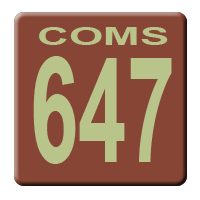Description
This graduate seminar addresses recent innovations in information and communication technology (ICT), providing students with the following:- Critical overview of the significant technological developments in computers, data networks, information systems, and artificial intelligence/robotics.
- Facility with the important questions, issues, and problems that shape contemporary debates and conversations about communication technology.
- Knowledge of the influential individuals, organizations, and research programs that define the field.
Who Where When
Location: DuSable Hall 218
Time: M 6:00-8:40pm
Instructor: Dr. David J. Gunkel
Department: Communication
Office: Reavis 112
Office Hours: MW 1:00-2:00 & by appointment
Email: dgunkel@niu.edu
Texts & Resources
- David J. Gunkel. Of Remixology: Ethics and Aesthetics After Remix. The MIT Press, 2016. ISBN: 9780262033930
- David J. Gunkel. Gaming the System: Deconstructing Video Games, Game Studies and Virtual Worlds. Indiana University Press, 2018. ISBN: 9780253035721.
- David J. Gunkel. Introduction to Communication & Artificial Intelligence. Polity Press, 2019. (Pre-Print copy available via Blackboard).
These three texts are required and must be procured by all students enrolled in the course. In addition to these traditional print materials, we will employ a number of on-line texts. These materials are indicated on the course calendar and are required reading.
Objectives
Students will learn and become proficient with the following:- Theory & Concepts. Students will know the terminology, fundamental texts, and basic concepts of information and communication technology. They will be able to talk the talk, to analyze the major issues and debates, and to trace complex relationships between ICT and contemporary culture.
- Critical Thinking & Information Literacy. Students will practice critical evaluations of texts, media, and technology. They will learn how to question information, assess its importance, and communicate their findings to others. In doing so, they will cultivate the knowledge and confidence to deal effectively with current and future technological innovation.
- Research & Publication. Students will actively participate in the current debates and controversies concerning ICT. They will develop, research, and write an original paper suitable either for the MA thesis, publication in a scholarly journal, or presentation at an academic conference. In this way, students will not only learn about ICT but will actively engage with and contribute to the field.
